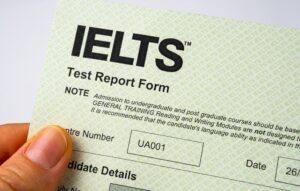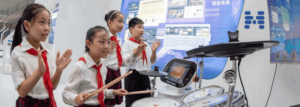
KUALA LUMPUR, 19.7.2021 – UK students’ learning experience takes a drastic turn as more higher education institutions choose to keep most lessons online. The ruling, wrought by the pandemic, is rooted in university leaders that are cautious about overpromising their students.

Image source: Pexels
The decision was made despite the Government’s lifting of Covid-19 restrictions on 19 July, which allows full face-to-face teaching.
Manchester University was the first university to fully migrate to online lectures. It is suggested that more institutions will follow suit to work around the digital initiatives, with universities such as Cambridge and Warwick announcing their plans to maintain the new practice.
Online learning will minimize close contact among students and staff and hence, reduce the spread of the Covid-19 virus. However, the challenge lies in convincing students that this new approach is for the best.
There is a strong objection from students who wish their study experience could return to normal, which includes face-to-face interaction, full campus experience, and hanging out with their peers after class — students simply crave proper human contact after spending months learning in their bedrooms.
As explained by Nick Hillman, director of the Higher Education Policy Institute:
“Some universities are saying some things will be moved permanently online, and there are genuinely some students for whom that’s worked well.
But the difficulty for universities is that students are very keen for the face-to-face stuff to come back. You can only push technology so far. What really matters for students is human beings and having a sense of belonging. If it’s all online you just don’t get that.”
In the light of the issue, Adam Tickell, Vice Chancellor of Sussex University finds it too early to determine how the pandemic has permanently altered the teaching process of higher education, although most people have since adapted to the new technology. He reasoned that lectures were initially interactive for educators and students to teach and learn effectively.
“There continues to be a very strong rationale for the kind of education we were offering before the pandemic. Obviously, seminars and labs are much better when there is a small group of people interacting. But even for lectures, when you are lecturing, every lecture is interactive – you know when you are giving a terrible lecture or a good one because the body language is there, you feed off the students and they feed off you,” Tickell noted.
The Covid-19 pandemic can be seen as a catalyst for various opportunities in the education industry, namely Nursing and Healthcare courses experimenting with virtual and augmented reality, improving the international student market, and recognizing more realistic ways for students to demonstrate their knowledge in exams and projects.
That is not always the case for students requiring interactive classes, namely Rhian Shillabeer, a Politics undergraduate at the University of Kent. Shillabeer’s second year was filled with virtual learning in a constricted environment without the use of the university’s facilities, and was evidently upset with her university’s choice to retain its restrictions despite the Government’s announcement.
She comments, “But if all restrictions are set to end in the middle of July, and I go back in the last week of September, it doesn’t sit right with me that the government can get rid of all restrictions but my university will still have them.”
The continuation of online learning also raised concerns about how students still need to pay the full amount of fees when there were clearly little to no physical classes and using the facilities provided, as addressed in a 28 June article.
“To make students pay nearly £10,000 for something universities have a choice whether or not to implement, it’s not fair. I’m not happy to pay that much. In my first year I was happy to pay that much because I was getting everything that was promised to me. But I’m not getting everything that was promised to me this year, even though it could be.” Shillabeer added.
She had sent a letter of protest consisting up to 300 signatures from her peers to her school’s Vice Chancellor and executives, but was met with no response.

Jocelyn Cheng
Jocelyn Cheng (JC) is an INFP writer seeking to spread inspiration and spark connections through her words. Her dedication to writing has gifted her with an ability to write for multiple platforms (e.g., website, social media, newspaper, magazine, etc) in different fields, namely Education, Travel, and Lifestyle. JC personalizes her works by adding a touch of her own experience into the mix whenever she can to relate to her readers. A self-proclaimed poet and currently a freelance writer, she's working on an untitled poetry book at home while juggling between writing for Eduloco, dancing, and keeping her only plant alive.





